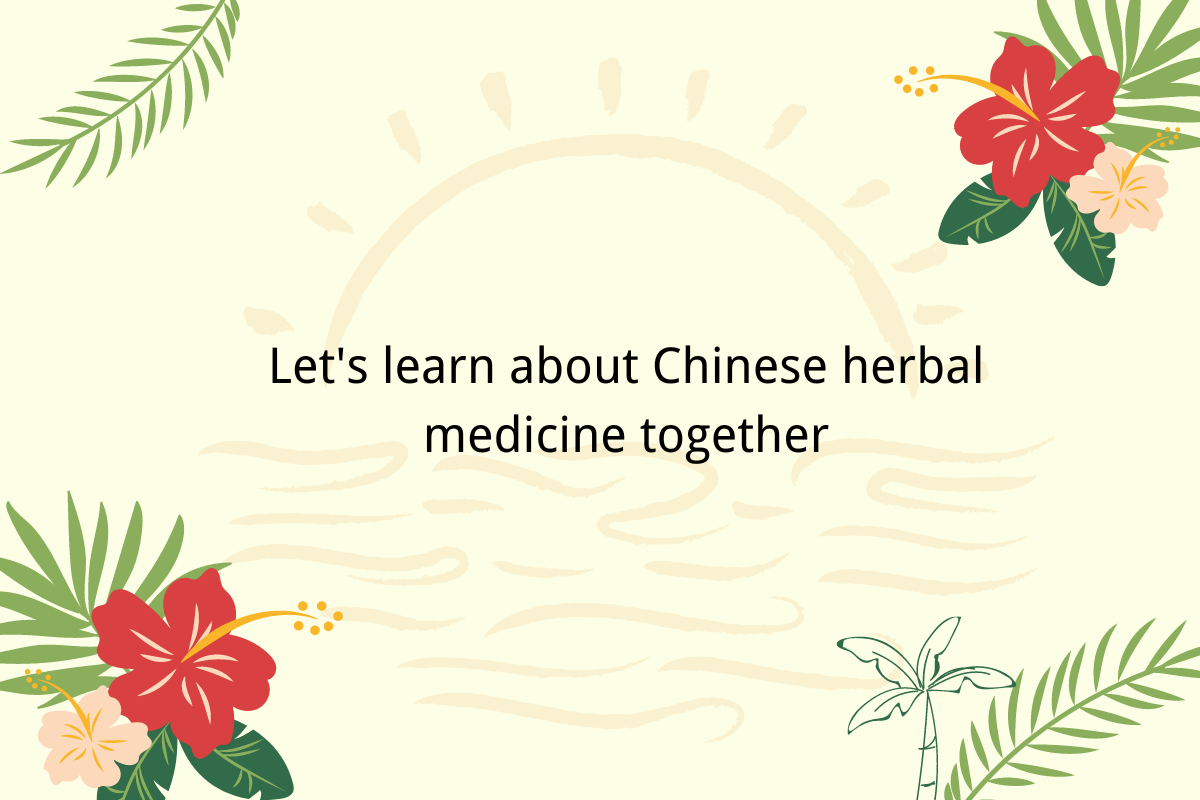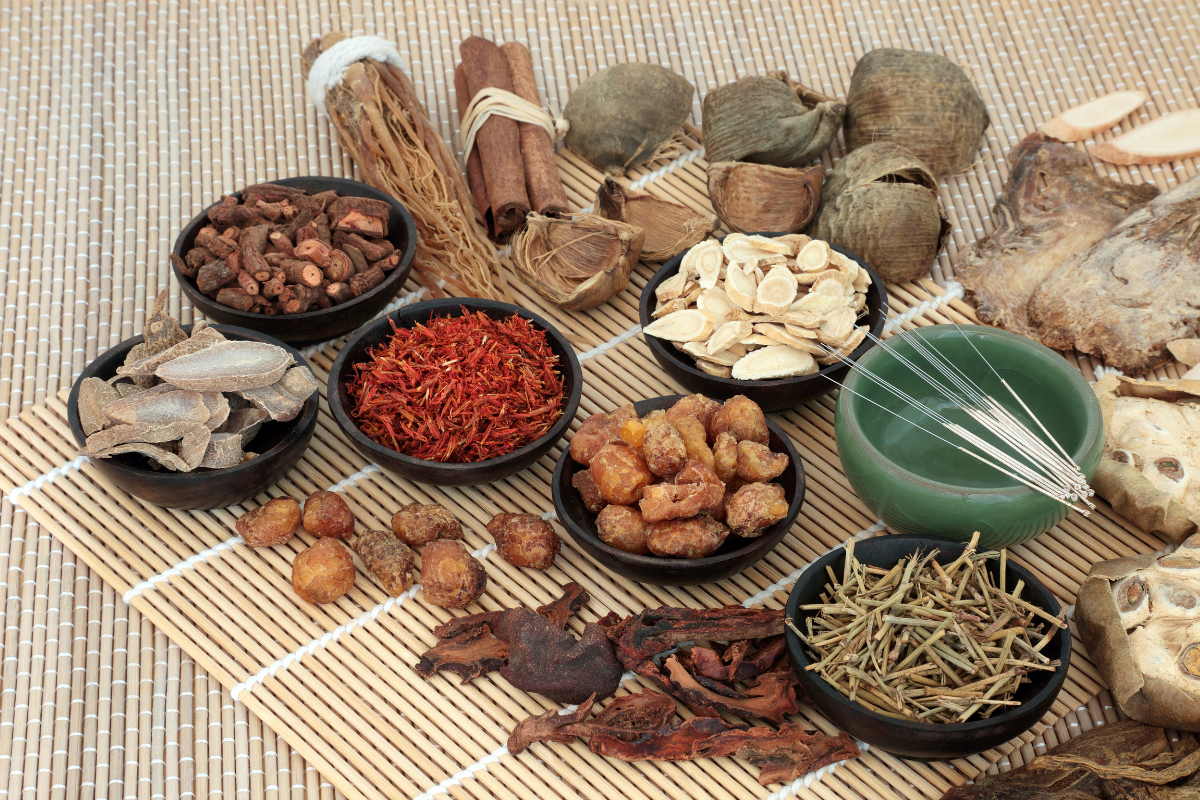Let's Learn About Chinese Herbal Medicine Together
Today, let's delve into the mysteries of traditional Chinese medicine (TCM). As a crucial part of Chinese culture, TCM not only played a significant role throughout China's history but also gained worldwide attention. It embodies rich wisdom and unique therapeutic methods, increasingly recognized and respected by people worldwide.

What is Traditional Chinese Medicine
Traditional Chinese Medicine is an integral part of Chinese traditional medicine, with its theoretical basis including the concepts of Yin-Yang, Five Elements, meridians, organs, Qi, blood, and bodily fluids. TCM primarily utilizes Chinese herbal medicine, combined with therapies such as acupuncture, acupressure, Qigong, dietary regulation, massage, and others, to maintain health and treat illnesses 疾病 (jí bìng).
疾病 (jí bìng), noun, illness
Examples:
- The doctor treats various illnesses at the clinic.
医生在诊所治疗各种疾病。
Yīshēng zài zhěnsuǒ zhìliáo gèzhǒng jíbìng. - He often suffers from various illnesses.
他经常患有各种疾病。
tā jīngcháng huàn yǒu gèzhǒng jíbìng.

Characteristics of Chinese Herbal Medicine
- Holistic Approach: TCM emphasizes the holistic balance of the body, focusing on addressing the root causes of illnesses rather than merely alleviating symptoms temporarily.
- Personalized Treatment: Tailored treatment plans are formulated based on individual constitutions, conditions, and other factors. Different herbal 草药 (cǎo yào) combinations may be used for the same disease based on individual differences.
草药 (cǎo yào), noun, herbal
Examples:
- I like using herbal remedies to treat minor ailments.
我喜欢使用草药来治疗小病。
wǒ xǐhuān shǐyòng cǎo yào lái zhìliáo xiǎo bìng. - She drinks herbal tea every evening for relaxation.
她每天晚上喝草药茶放松。
tā měi tiān wǎnshang hē cǎo yào chá fàngsōng.
Popular Chinese Herbal Medicines Introduction
- 人参 (rén shēn): Ginseng, known as the "king of herbs," is highly valued for its tonic properties. It is believed to tonify
Qi, invigorate the spleen, nourish the lungs, and strengthen the heart. Ginseng is commonly used to treat weakness, boost immunity, and improve overall vitality. - 枸杞 (gǒu qǐ): Goji berries are commonly used in Chinese herbal medicine for nourishing the liver and kidneys, improving
vision, moistening the lungs, and replenishing blood. They are often prescribed for conditions related to liver and kidney deficiencies or diminished eyesight. - 黄芪 (huáng qí): Astragalus root tonifies Qi and strengthens the exterior. It is commonly used to treat fatigue, poor appetite, and other symptoms related to Qi deficiency.
Key Sentences:
- My mom got sick, so I cooked her a bowl of Dong Quai soup.
我妈妈生病了,我给她煮了一碗当归汤。
Wǒ māmā shēngbìng le, wǒ gěi tā zhǔle yī wǎn dāngguī tāng. - The doctor suggested that I take Astragalus tablets every day to boost my immune system.
医生建议我每天服用黄芪片来增强免疫力。
Yīshēng jiànyì wǒ měitiān fúyòng huángqí piàn lái zēngqiáng miǎnyìlì. - Grandma often drinks Goji berry tea, saying it's good for the eyes.
奶奶常常用枸杞泡水喝,说对眼睛很好。
Nǎinai chángcháng yòng gǒuqǐ pào shuǐ hē, shuō duì yǎnjīng hěn hǎo.